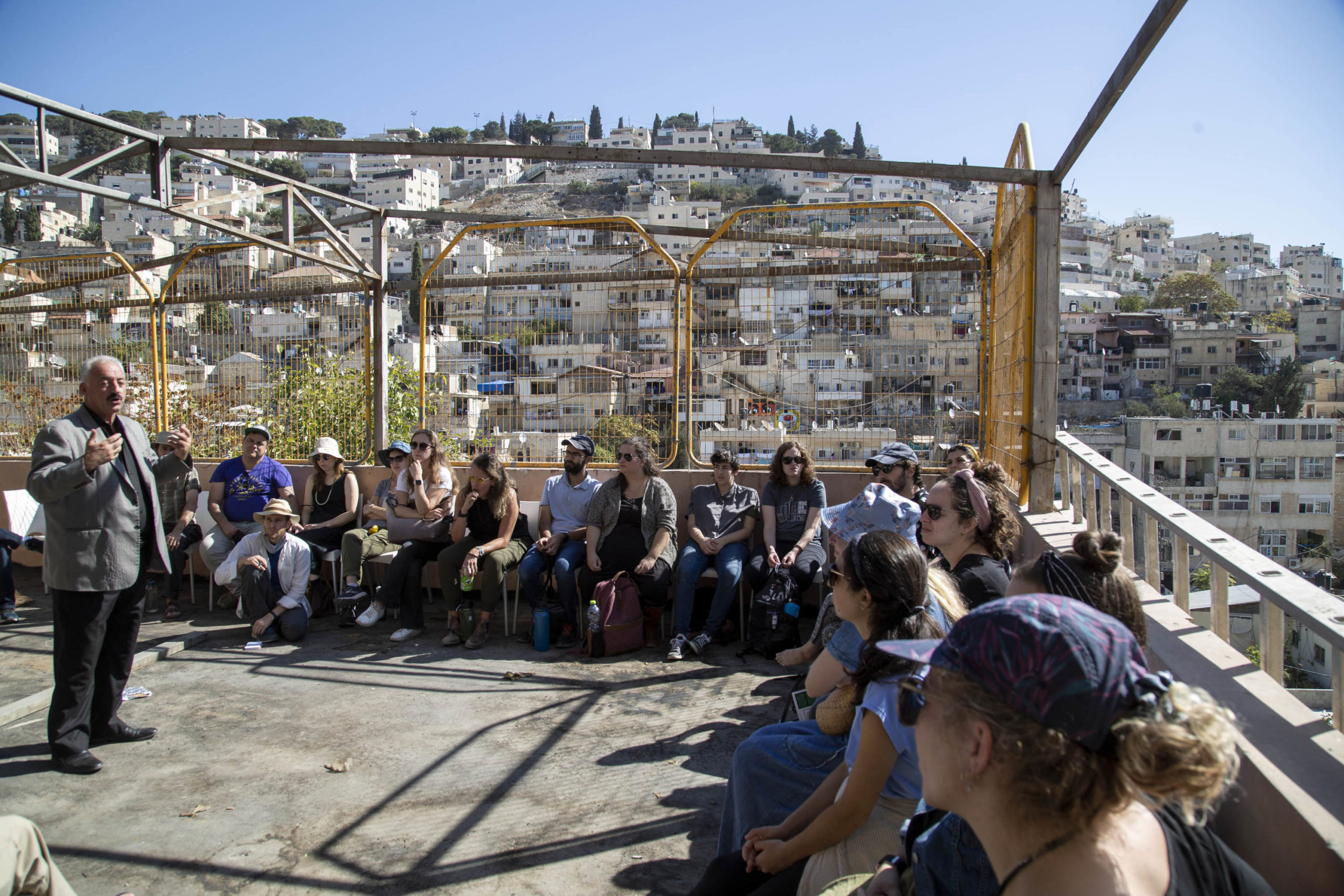It’s been a month since I spent a day in East Jerusalem with 15 other rabbinical and cantorial students as part of T’ruah’s Israel Program. I needed time to gather my thoughts and feelings before writing. We saw a lot that day — the Green Line that was once the border between Israel and Jordan, the Palestinian village of Silwan right outside the Old City, and lots of maps. But what broke my heart was three simple sentences from a seven-year-old child.
We convened on a large outdoor porch in the hot sun to meet Fakhri Abu Diab, a member of the Silwan Land Defense Committee. The Abu Diab family home is under threat of demolition because it lacks the proper building permit — permits that are nearly impossible for Palestinians to get. Around 1,500 people in Silwan face the same danger. Israeli settler organizations want to bulldoze the neighborhood and replace it with an archaeological park and settler homes.
As Fakhri spoke, two young children played behind him. They peered at our group with curiosity and eagerly wiped dirt from the plastic chairs with rags, a courtesy I did not feel we needed or merited. Towards the end of Fakhri’s talk, he invited the children, who lived nearby, to say hello and answer some questions from the group. One participant asked the little girl, around seven years old, how she felt about current events. She replied directly: “There is nothing anyone can do. Whatever will happen will happen. Only God can help us now.” At this moment, I completely broke down. I was devastated that these children have spent their entire lives witnessing home demolitions, violence, and the suffering of their loved ones.
Bearing witness to this conflict, not just reading about it or watching a video interview, but actually seeing and feeling, was painful. However, I’ve realized that — absent a direct way to change this situation — witnessing is the most important thing we can do. Rather than suppress our tears, we must cry, and cringe, and fume. These feelings will grant us greater empathy, which will hopefully help us to become better and more effective allies and advocates.
I have been reflecting on the significance of weeping in the context of a recent Torah study. My classmates and I looked at numerous incidents of weeping throughout Genesis. In many of these occurrences, the person shedding tears “lifts up [their] voice” before revealing their despair. “Lifting” a voice might mean literally raising the volume of one’s vocalization. But it also implies a kind of emotional elevation that accompanies any outpouring of sentiment. In order to truly process our feelings, the good and the bad, we must release ourselves from daily worries and surrender to the sensation of pain. I was struck by the little girl because she did not express any outright discomfort. On the contrary, she shared her situation with few words and a kind of emotional submission.
I feel incredibly angry on her behalf. She does not have the privilege of wailing and seeking a safe, isolated area to experience her affliction. She must, instead, make the best of a situation that she does not expect will change. In many ways, crying is a gift because it accompanies the physical release of our suffering, paving the way for healing and catharsis. In order for this girl to walk through life with her emotional weight, she must suppress her tears and instead hike onwards towards the unknown future.
I do not yet know what to do next. There is no neat way to end any given meeting or conversation about the occupation that disrupts and destroys human life. So I will continue to cry. I will continue to ache. And then I will try and use my voice for the sake of others, who deserve to gracefully lift up their voices, weep, and release their burdens.
Sara LeMesh
she/her/hers
T’ruah Israel Fellow
Cantorial Student, HUC-JIR Class of 2026


